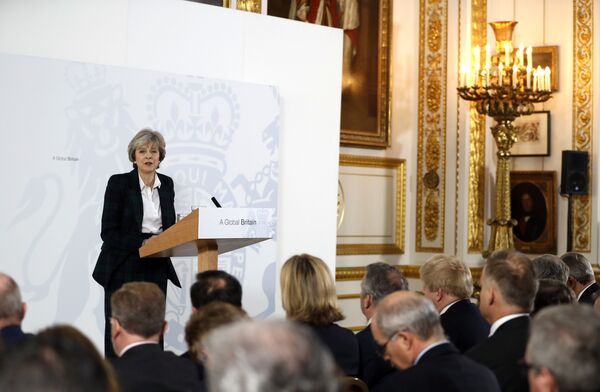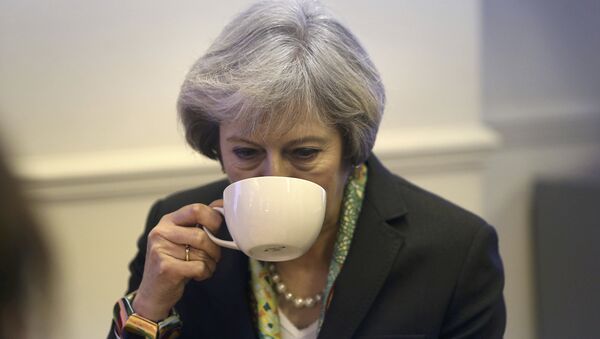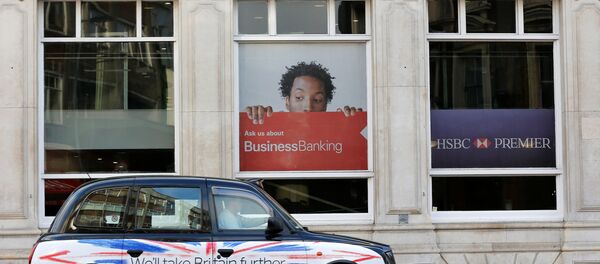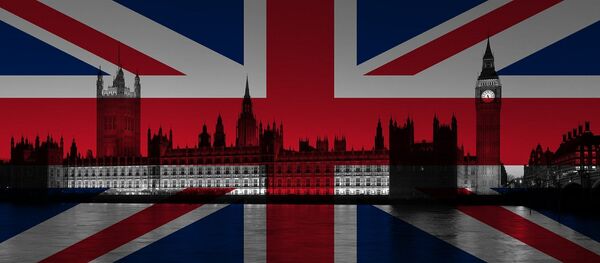For the German newspaper Die Welt, it was a case of "Little Britain" and May leading the UK into a not-so-splendid isolation. For pro-Brexit publications, May was likened to Margaret Thatcher and hailed as the PM who would put the "great" back into "Great Britain."
May herself said that the UK would emerge from Brexit as a "great, global trading nation," invoking images of the 19th century when British ships ruled the waves and London was the capital of a vast commercial Empire. But how realistic is her vision? Can Britain regain its former economic glories outside of the EU or is it all just wishful thinking?

The basic problem is that the debate over Brexit has obscured the underlying weaknesses of the British economy, which arguably is less to do with EU membership, than with the neoliberal economic policies followed by successive governments in the UK since the late 1970s.
Following the arrival of Margaret Thatcher at 10, Downing Street in May 1979, the British economy was radically restructured.
The manufacturing industry, which accounted for around a quarter of GDP, was allowed to go to the wall and Britain became predominantly a service economy. The financial sector was deregulated, building societies demutualized and the power of the banks grew. As Britain stopped making things, our balance of payments moved sharply into the red. Between 1963-82 manufacturing exports had exceeded imports by between £1.5 billion (US$1,84bn) and £6 billion (US$7,4bn) every year.
But in 1983, for the very first time, Britain, once "the workshop of the world" — and which had been responsible for 43% of world manufacturing exports one hundred years earlier — recorded a deficit in visible trade. A very healthy surplus of £5.5 billion (US$6,8bn) in 1980, had been transformed to an extremely unhealthy deficit of almost £4 billion (US$5bn) by 1984. Trade in services made up for the shortfall for a while, but every year since 1995, has seen a deficit on the UK current account.
Households were encouraged to go into debt too with the extension of easy credit. We became a country that was living beyond its means — and the situation keeps on getting worse.
In the third quarter of 2016, the trade in goods deficit widened by £8.5 billion (US$10,43) to £13.6 billion (US$16,7bn) — with the current account deficit up to a whopping £25.5 billion (US$31,3bn) — equating to 5.2% of GDP.
Meanwhile, credit card debts hit an all-time high of £66.2 billion (US$81,24bn) in November. Whether we're in the EU or out of it, we can't continue like this for much longer. As the economist and entrepreneur John Mills has put it:
"Which of our political parties is going to wake up first to the fact that our current economic policies are unsustainable and that something drastic needs to be done?"
Which brings us back to Brexit. Despite the doomsayers doing their best impression of Dad's Army's Private Frazer, leaving the EU could be a success, but only if withdrawal is accompanied with policies which focus on improving the country's utterly appalling balance of payments situation.
For some clues on what needs to be done, we only have to look at the policies the country was pursuing in the years before Britain joined the then-Common Market and in particular, during the 1967-70 period.
As I noted in the New Statesman, "The impressive economic record of the 1966-70 Wilson government is one of the great under-reported stories in British post-war history."
After the devaluation of the pound in 1967, the new Chancellor of the Exchequer, Roy Jenkins dampened down domestic demand by raising taxes and channelled resources into the export sector. A highly innovative levy on service-sector employment, Selective Employment Tax, was introduced with the money raised going to subsidize manufacturing. At the same time a "Buy British" campaign was launched, encouraging people to purchase domestically produced goods.
As I wrote in 2010: "The result of Labour's pro-manufacturing polices was that in 1969/70 Britain recorded a record balance of payments surplus of £550 million (US$675m), 'one of the strongest in the world' by Jenkins's own estimation… The public finances were also in rude health — a borrowing requirement of £1.96 billion (US$2,41m) in 1967/68 had been transformed into a surplus of £600 million (US$736,3m) by the end of 1969. And, fueled by the export boom, GNP grew by over 6 per cent between the middle of 1967 and the end of 1969."
Britain went into the 1970s in an incredibly strong position economically, but unfortunately many of the gains were squandered in the so-called "Barber Boom" caused by the irresponsible policies of Tory Chancellor Anthony Barber.
Then, at the end of the decade another Conservative administration decided manufacturing — and little things like the balance of payments — didn't matter, and we got into the indebted mess we're in today.
For all the talk about post-Brexit "trade deals," the fact remains that the UK doesn't produce enough goods to export — or for the home market. We're no longer a "great global trading nation" but a "great importing nation." We've got massive imbalances with most of our leading trade partners.
Britain's trade deficit in goods with China in 2014 was £21.7 billion (US$26,7bn) — hardly outweighed by a £2.2 billion (US$2,7bn) surplus on trade in services. Last year, the UK's trade deficit with the EU hit a record high of almost £24 billion (US$29,5bn).
Of course EU countries will want to strike post-Brexit trade deals with Britain as they do so well out of us. But the fault lies with us — and not them.
While European countries like Germany wisely maintained a strong manufacturing base, enabling them to export cars, gas boilers and other machinery around the world, and supply their home market, successive British governments allowed our factories to close or be taken over by foreign-owned companies, with profits appropriated abroad. Where once British motor cars rolled off the assembly line at Cowley in Oxford, German cars are now made. It's the same situation up and down the country.
The discussion we should be having now is not on whether we have a "Hard" or "Soft" Brexit, but on the urgent need to replace the economic model we've followed since 1979. We need to start making things again, and paying our way in the world, or else all the talk about being a "great, global trading nation" is just hogwash.
Brexit will allow the UK more economic independence, but whether it succeeds or not depends on whether we return to the "balancing the books" policies that worked so well for the country in the late 1960s. Over to you, Mrs May.
The views expressed in this article are solely those of the author and do not necessarily reflect the official position of Sputnik.
Follow Neil Clark on Twitter @NeilClark66
Support his AntiStalker Fund




